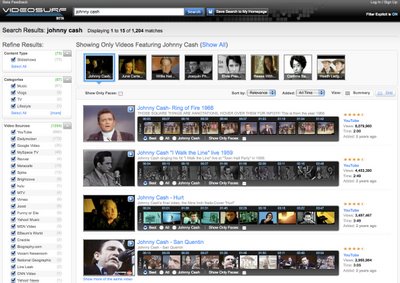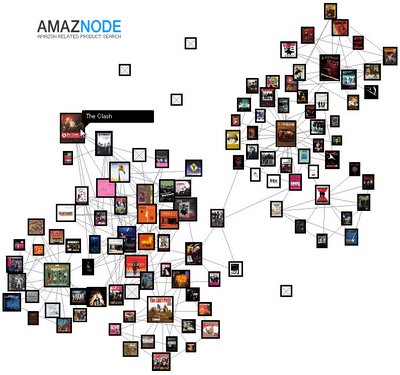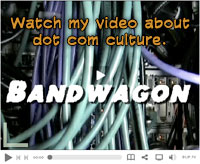Analyzing, Indexing, Reading and Interpreting Online Digital Video Content

The advances in online video keep coming. It's a good thing, too, since video is quickly becoming one of the most popular online pastimes. As comScore notes, three out of four American Internet users regularly watch videos. In September, 146 million people watched an average of 86 videos each.
With so many videos online, new tools are popping up to help users sift through it all. For example, VideoSurf (see photo above), will actually analyze every frame of online videos from YouTube, Hulu and numerous other popular sites. The software analyzes faces and elements in the videos so that when users search for something like Johnny Cash, the results will bring the user right to the exact frames of video where Johnny appears. It works great.
Another spooky technology is from a company called called DigitalSmiths who describe themselves as follows, "Digitalsmiths is an innovative video indexing and digital content publishing technology provider serving major Hollywood studios, web video destinations, media companies and advertisers. The company’s proprietary computer-vision based video indexing, search and interpretation algorithms empower content owners and publishers to efficiently monetize their digital video content, and advertisers to automatically target ads to thematically relevant video content."
The New York Times has written a review of such sites called "Zeroing In On Your Favorite Video Clips".
Also, check out the video below from the PBS series Wired Science. Scientists are using facial recognition software to help Autistic kids learn how to interpret emotions by reading facial movements and visual cues. Wild stuff.
Labels: digital+film, digital+media, New+Media, online+entertainment, search, TV+Video, Video







